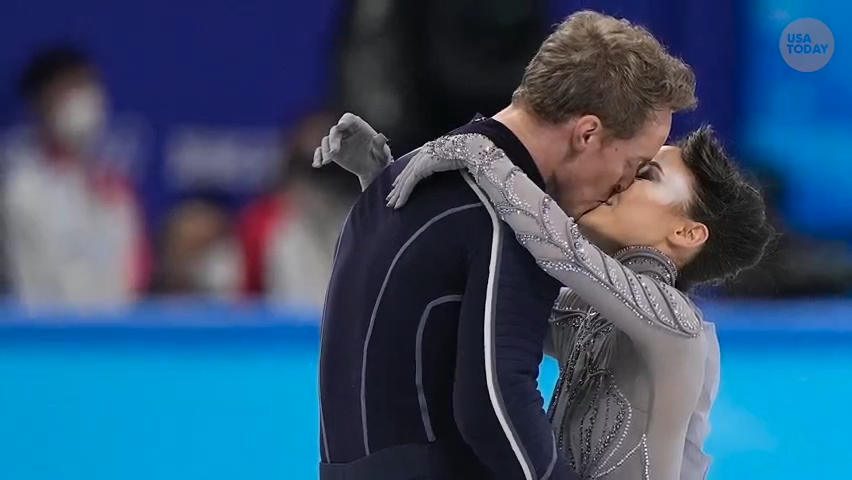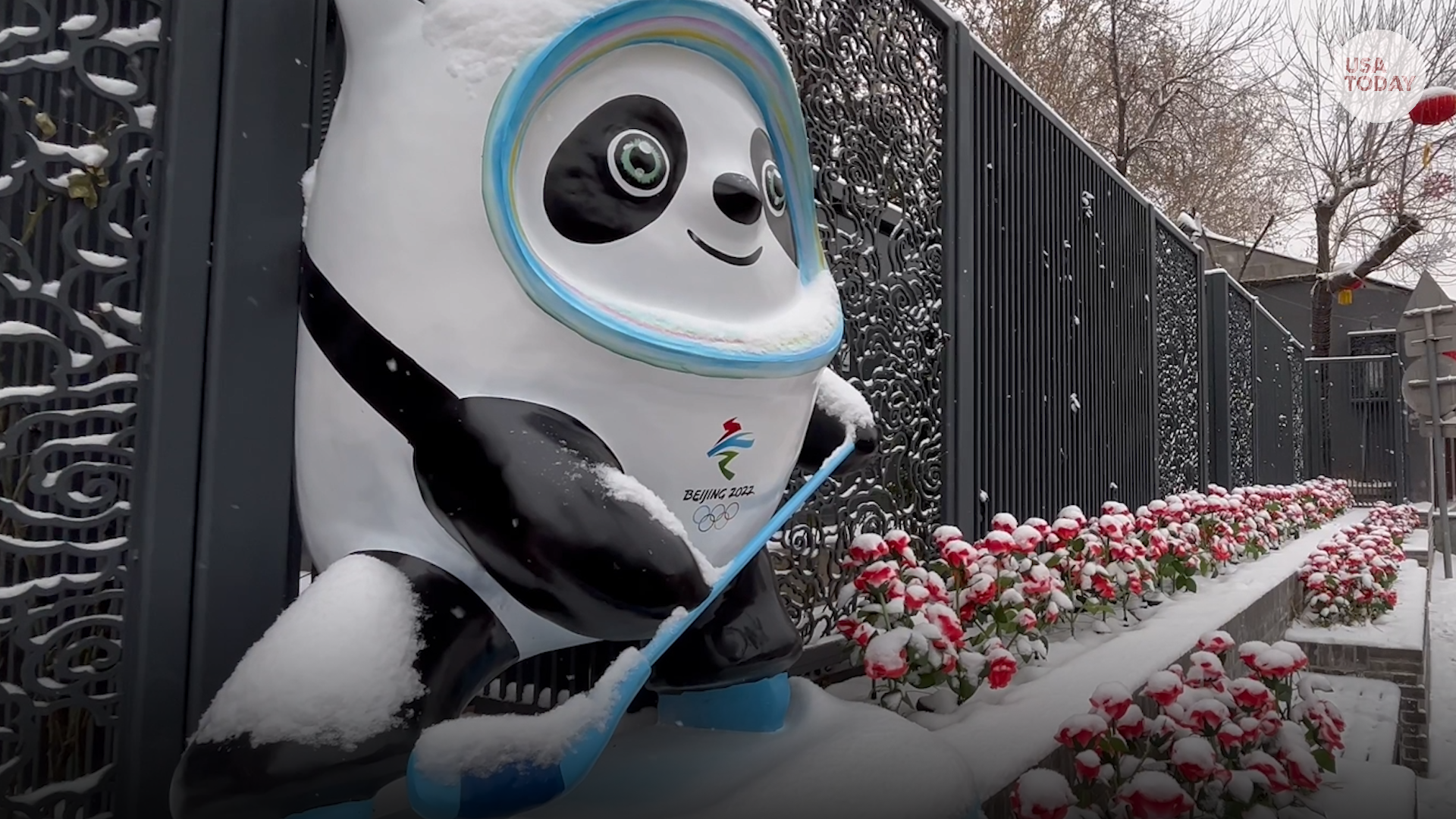Beijing sought glory for its Winter Olympics and made sure that happened

BEIJING – China, like a lot of countries with authoritarian governments, tends to meet its official targets.
Perhaps unsurprisingly, Beijing set itself such a high bar for its Winter Olympics that many – not all, but many – of its success stories over the last several weeks have appeared to take place before they even happened.
"China has achieved its goal of attracting 300 million people to participate in snow and ice sports."
"The Beijing Games are leading the way in carrying humanity's aspirations for peace, solidarity and progress."
"China's accomplishments in hosting the greenest ever Winter Olympics have been widely praised."
These statements are not the whole picture. They represent just a sampling of the commentary and remarks that Paste BN heard inside Beijing's COVID-secure Olympic bubble in press conferences, in the hallways of various Olympic venues and press rooms, in brief interactions with Games officials, and out of the mouths of talking heads that filled 24-hour news broadcasts and updates on state TV and social media.
This time, no breakthrough with China
Monday marks 50 years since "the week that changed the world," when President Richard Nixon became the first U.S. president to visit the People's Republic of China after it was established in 1949. The U.S. was seeking to improve relations with a communist country during the Cold War. Apart from a small group of pingpong players, few Americans had visited mainland China since the mid-1950s.
Well, temper your expectations for the Olympics following in Nixon's footsteps. There was no U.S.-China diplomatic breakthrough during the Beijing Games. True to their word, U.S. and European officials boycotted the event over the Chinese government's human rights record against Xinjiang's Uyghurs, a predominantly Muslim ethnic minority persecuted by Beijing.
'Sports can open up doors': How the Games could improve U.S.-China ties
For some, Beijing appeared to pour salt in the wound in its choice of Uyghur cross-country skier Dinigeer Yilamujiang as one of the two final torchbearers who lit the Olympic cauldron at the opening ceremony. Certainly there seemed to be symbolism in it. Of what? We don't need the West's approval any longer, unlike in 2008, when China last hosted an Olympic Games and it was not the economic, technological and military superpower that it is today. China's top Olympic guest for the 2022 event was Russian President Vladimir Putin – now menacing Ukraine's sovereignty.
During Nixon’s 1972 visit to China, Chairman Mao Zedong promised to send two pandas to an American zoo. They quickly arrived in Washington in what was then viewed as an encouraging episode for China’s fledgling "panda diplomacy."
Today, pandas may join a lengthening list of U.S.-China flashpoints, from trade to China's assertiveness in the South China Sea, after a U.S. congresswoman proposed barring panda cubs born in the U.S. from being returned to China, as required by Beijing’s loan contracts. (Bing Dwen Dwen, the Beijing Games' panda mascot, declined comment when reached by Paste BN. As previously reported: pandas don't talk.)
Bing Dwen Dwen: Beijing 2022's panda mascot isn't taking questions

A seemingly successful Games
Still, despite the Beijing Games ranking among the most politicized in history, and easily the most sealed-off, organizers promised a COVID-free event and, as of this writing, they appeared to have impressively largely achieved that.
There was some grumbling from athletes and other participants about grim and inappropriate quarantine hotels, less than appetizing food and a general Olympic atmosphere that lacked, well, unscripted fun amid an endless routine of daily COVID-19 tests and other virus-induced bureaucracy and separations.
'I cry every day': Olympic athletes slam food, tests, Beijing quarantine hotels
Chinese-American freeskier Eileen Gu who opted to represent China in Beijing, seemed to fascinate and baffle and annoy and bring real joy to just about everyone from all sides at different times, apart from Gu herself, who didn't seem to see what all the fuss was about. Or at least she did her best to navigate around questions faced by China's foreign-born athletes amid a backdrop of rising nationalism.
"The Chinese public's perception of naturalized athletes has a lot to do with their final game results," said Ann Liu, who runs a lifestyle company in Beijing, as she explained to Paste BN with school-teacher seriousness why China likes a winner. Gu became the first freeskier to win three medals in a single Olympics.
"Gu is a model of excellent family education, or a model of any individual’s growth," she said. "She has already established a good image in the public mind. In addition, Gu is also very pretty."
What's next for Eileen Gu? 'Stay tuned,' three-time gold medal winner says
Unlike Gu, American-born women's figure skater Zhu Yi received considerable hate online after falling while competing for China. Chinese state media largely ignored the gold medal in men's figure skating won by Nathan Chen, whose parents immigrated to the U.S. from China. Chen is the first Asian American man to win the title.
Opiniion: Kamila Valieva was failed by the adults in her life – and it showed
And the whole sad affair of three-time Olympian and former No. 1-ranked tennis doubles player Peng Shuai does not appear to be closer to any kind of resolution.
Shuai showed up in the Olympics bubble for a few days after last year claiming, then retracting, an allegation that four years ago China's former vice premier Zhang Gaoli forced himself on her. She had dinner with International Olympic Committee President Thomas Bach, watched Gu win a gold for China at the women's freeski big air event and participated in an hourlong interview with a French newspaper during which she restated that the whole episode was based on an "enormous misunderstanding."
Is this really what Shuai thinks? Nobody knows, apart from Shuai. In China, her allegations, when they make it past the nation's restricted internet, are explosive, and, like the sexual harassment issue more generally in the world's most populous country, not something to talk about if you want to stay on the outside of a jail.
China and #MeToo: Peng Shuai is vanishing. Much like China's #MeToo movement
Casual diplomacy in China
But there were also some informal moments – not photographed, not blogged about, not shouted from the rooftops of a state broadcaster or the account of an influencer gun-for-hire – that appeared to suggest that person-to-person contact can yield some, if limited, connections when government-to-government ones can't, or won't.
"You are so beautiful," one of the army of shy, a little nervous at times, but friendly Chinese volunteers who have helped staff these Games whispered into the ear of a reporter from a U.S. news agency Friday as a small group of us stood marveling at a section of China's Great Wall about an hour's drive north of Beijing.
"So are you, my dear," the reporter said back, the seed of a new bond formed.
Another day, Lori Nickel, a sports columnist for the Journal Sentinel in Milwaukee who has been covering the Olympics for her paper as well as Paste BN, was handed a postcard as well as a letter to deliver to players on the Milwaukee Bucks NBA team.
"On the side road, I wish the time was quiet and I would smile for the rest of life," the note to Nickel read, which was written by one the volunteers.
Nickel said that covering the Games so far from home had been challenging and that these volunteers, many of them students looking for a chance to learn or polish their English or have some contact, however limited, with foreigners, "were like family to me. Just seeing them made me feel reassured that every day would be OK."
Xi's aspirations for Chinese sport
In Beijing, it almost looks like China's President Xi Jinping got everything he wanted from these Games.
He brushed off the diplomatic boycott, led China to its greatest ever haul of Winter Olympic medals, stoked a seemingly insatiable demand for Bing Dwen Dwen merchandise among Chinese consumers – and quite a few Paste BN reporters – and maintained his world-class system of censorship that is so attuned to political taboos that Madame Tussauds Beijing, close to Tiananmen Square, features a smiling wax figure of former President Barack Obama, but not a single Chinese ruler.
Xi transformed Beijing's Shougang iron and steel plant, the source of the metal that went into constructing the latticework on the Bird’s Nest national stadium, and nine decades of smog, into an impressive urban renewal project for Beijing’s big air venue. Never mind that the century-old decommissioned steel mill's giant cooling towers look a bit dystopian and prompted jokes among participants and on social media about the Springfield nuclear power plant of "The Simpsons" fame.
Medal count: How each country performed at the Games
"Beijing successfully became the first city that hosted two Olympics, and its influence will increase," said construction worker Qin Yajie, 27, from Harbin in northeastern China, echoing comments Paste BN heard over and over in China.
Still, even a leader as powerful as Xi doesn’t get everything he wants at all once.
In hosting the Winter Olympics he has fulfilled an ambition that began as long ago as 2008 when, not yet communist party chief, he was the top Chinese official who oversaw the preparations for the Summer Olympics in Beijing.
Yet all the indications are he would happily trade several of China's Olympic medals, as would most Chinese sports fans, to achieve his "China Football Dream" for the men’s national soccer team to qualify for the World Cup finals, host them and win them.
The team sparked national despair by losing to Vietnam this month, ending all hope of reaching the next World Cup in Qatar, despite China naturalizing players born in Brazil and England. (A similar dismal result befell China's largely foreign-born Olympics hockey team in Beijing.) The team has only ever qualified once – in 2002, when they failed to score a goal or win a point. China's "Steel Roses," the national women's soccer team, meanwhile recently won the Women's Asia Cup for a record ninth time.
Xi hasn't had much to say about that.